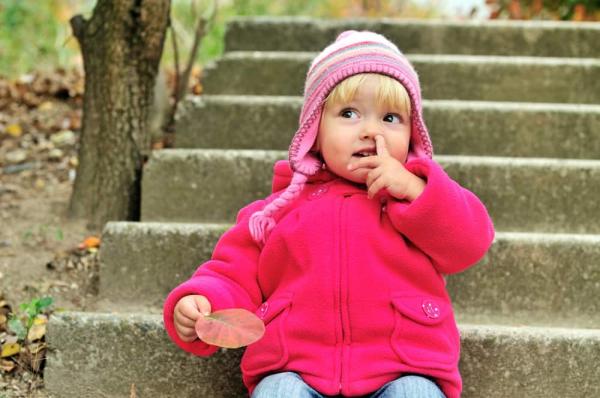
Kids are cute, but some of their habits can be less so. The struggle of trying to break their bad habit can be daunting. For the most part, kids will naturally grow out of most of these habits; but in the meantime, there are ways to keep them from their unsightly picking, twirling, chewing, biting and sucking.
Trigger-happy tykes
These bad habits are usually triggered by something. Whether it be boredom, tension or anxiety, these habits are a way to cope with emotions. For a week or so, ignore the urge to tell them to stop. Keep a notebook to try and track a pattern to see what the culprit may be. If you notice that chewing, biting, sucking or twirling usually starts during homework, try some relaxation techniques to dispel the anxiety. A couple deep breaths or a little break every so often can break up the anxious emotions that seem to always surround math problems.
The small victories
Habits are often done unconsciously, so drawing attention to the "good behaviors" can help them realize their own bad habits. Yes, you will want to draw a tiny bit of attention to the habit you despise ("I noticed you bite your nails; do you know you do that?"), but praising good behavior is going to be key.
Be consistent with your praises; ignore when the habit persists, but be positively vocal when you notice it's not there. Creating an emotional incentive might also be helpful - letting your children know that "big kids" don't suck their thumbs may help them want to stop.
Eyes on the prize
No matter the habit, positive beats negative. Trying to punish your child or shaming him or her into stopping is not going to work in the long run (And it clues your kid in on your tactics). Likewise, short-term solutions (like a bitter polish to stop nail biting) are only going to frustrate your child, and could increase the habit's appeal. Change is really going to happen when your child wants to stop, not just when Mom and Dad want him or her to.
Again, try an incentive approach. Give out a sticker for each day without hair twirling, or let them choose Friday's dinner menu after five days of no nose picking.
Quick, look at the squirrel!
It's not simple to break a habit when you can't totally eliminate the temptation to chew on ever-present locks, but distraction techniques can work. For knuckle-crackers, try distracting fingers with some bubble wrap. Instead of their hair, stock up on some ribbons or hair elastics for your little girl to twirl, or a chewy snack to munch on if she's a hair-chewer. During TV time, thumb sucking might be a temptation, but not if kids already have a snack or Popsicle to keep their mouth busy.
No elbows on the table, please
While you don't want to draw too much attention to their chewing-with-their-mouth-wide-open-at-dinner, a quick etiquette lesson might help them quit. Discuss how it is rude to do so, and it might make people lose their appetite if you chew with your mouth open. To really solidify this, try placing a mirror in front of your child so they understand what their habit causes other dinner guests to see. In this instance, an obvious approach could be helpful.
Practice, practice, practice (and patience)
Breaking a bad habit can be a frustrating experience. Remember, it takes 21 days to break a habit, no matter your age. Your little incentive schedule can lead up to the 21st day, where a larger prize is awarded. It will help kids stay motivated to reach the end of this little timeline. Remember though, this journey may have a couple setbacks, and that's OK. Eventually, things should sort themselves out.
At the end of your rope
Although these habits aren't exactly wonderful, they aren't life-threatening either. Usually, it's just a stage that your kids will grow out of.
However, some habits may have more severe consequences. If you are worried that thumb sucking may develop into issues with their teeth and jaw, you can get a mouth apparatus put in that makes it impossible to suck. At this point you've abandoned all subtlety, but being sly isn't worth the orthodontist bill later in life.
If you are concerned with your child's habit, you can consult his or her doctor for help.

